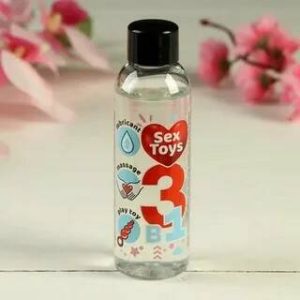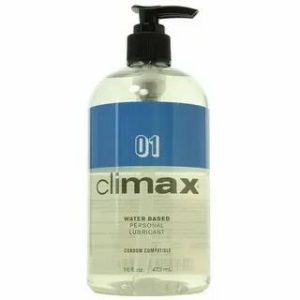How to choose right lubricants?
Uncategorized
0

Choosing the right lubricant is important for a comfortable and enjoyable sexual experience. Here are some factors to consider when selecting a lubricants:
Base Ingredients:
When considering the base ingredients of a lubricant, there are a few factors to take into account:
- Compatibility with Condoms and Sex Toys:
- If you plan to use condoms or sex toys, it’s important to choose a lubricant that is compatible with them.
- Water-based lubricants are generally safe to use with all types of condoms and sex toys, as they won’t degrade latex or silicone materials.
- Silicone-based lubricants are safe to use with latex condoms but may not be compatible with silicone-based sex toys, as they can deteriorate the material over time.
- Oil-based lubricants, such as natural oils or petroleum-based products, should not be used with latex condoms as they can cause the condom to weaken or break. They can also damage certain types of sex toy materials.
- Personal Sensitivities and Allergies:
- Consider any sensitivities or allergies you or your partner may have. Look for lubricants that are labeled as hypoallergenic or specifically formulated for sensitive skin.
- Avoid lubricants that contain ingredients that you or your partner may be allergic to, such as fragrances, glycerin, parabens, or certain preservatives.
- Conduct a patch test on a small area of the skin before using a new lubricant to check for any adverse reactions.
- Intended Purpose:
- Different lubricants are formulated for specific sexual activities or preferences.
- For vaginal intercourse, water-based lubricants are commonly used and safe for most people.
- For anal play, it’s recommended to choose a thicker lubricant specifically formulated for anal use, as the anus does not naturally lubricate as the vagina does.
- Some lubricants are designed specifically for use with sex toys, offering longer-lasting glide and protection for the toy’s material.
- Duration and Reapplication:
- Consider how long you anticipate your sexual activity to last and choose a lubricant that suits your needs.
- Silicone-based lubricants tend to last longer and require less frequent reapplication compared to water-based lubricants.
- However, keep in mind that silicone-based lubricants may leave a residue and can be more difficult to wash off.
- Texture and Sensation:
- Different lubricants have varying textures and sensations. Some may be thin and slippery, while others may be thicker and provide more cushioning.
- Consider personal preferences and what feels most comfortable and pleasurable for you and your partner.
Sensitivities and Allergies:
When considering sensitivities and allergies when selecting a lubricant, here are some factors to consider:
- Read the Ingredient List:
- Carefully read the ingredient list of the lubricant you’re considering. Look for any ingredients that you or your partner may be allergic to or have sensitivities towards.
- Common allergens or irritants to watch out for include fragrances, glycerin, parabens, propylene glycol, menthol, and certain preservatives.
- Opt for lubricants that are labeled as hypoallergenic or free from potential irritants if you have known sensitivities.
- Patch Test:
- If you’re unsure whether you or your partner may have a reaction to a lubricant, conduct a patch test on a small area of skin before using it during sexual activity.
- Apply a small amount of the lubricant to the inner forearm or another sensitive area and monitor the skin for any redness, itching, or irritation.
- If any adverse reactions occur, discontinue use and consider trying a different lubricant with alternative ingredients.
- Consider Natural or Organic Options:
- Natural or organic lubricants may be a suitable choice for individuals with sensitivities or those who prefer products with minimal additives.
- Look for lubricants that are made from natural ingredients such as aloe vera, carrageenan, or plant-based extracts.
- However, even natural ingredients can cause sensitivities in some individuals, so it’s still important to check the ingredient list and conduct a patch test if necessary.
- Seek Recommendations or Professional Advice:
- If you have specific sensitivities or allergies, it can be helpful to seek recommendations from healthcare professionals or individuals with similar experiences.
- Talk to your healthcare provider or a knowledgeable salesperson at a reputable adult store who can provide guidance on lubricant options suitable for your specific needs.

Purpose:
When considering the purpose of a lubricant, here are some factors to consider when selecting one:
- Vaginal Intercourse:
- If the primary purpose is for vaginal intercourse, water-based lubricants are generally recommended.
- Water-based lubricants are safe to use with condoms and are easily absorbed by the body. They provide a natural-feeling glide and are easy to clean up.
- Look for water-based lubricants specifically formulated for vaginal use, as they are designed to mimic the body’s natural lubrication and provide enhanced comfort.
- Anal Play:
- If the purpose is for anal play, it’s important to choose a lubricant specifically designed for this purpose.
- Anal lubricants are typically thicker and provide more cushioning and long-lasting lubrication. They are formulated to withstand the lower moisture levels of the rectal area.
- Look for lubricants labeled as anal lubricants or those with a thicker consistency. They may contain ingredients such as silicone or have a hybrid formula for extra comfort and ease of use.
- Masturbation:
- For solo play, the choice of lubricant depends on personal preference.
- Water-based lubricants are versatile and can be used for masturbation with or without toys.
- Silicone-based lubricants can also be suitable for masturbation, as they offer a longer-lasting glide and won’t dry out quickly.
- Use with Sex Toys:
- If the purpose is to use the lubricant with sex toys, it’s important to consider the material of the toys.
- Water-based lubricants are generally safe to use with all types of sex toy materials, including silicone, rubber, and glass.
- Silicone-based lubricants are compatible with most toy materials, except for those made of silicone. Using silicone-based lubricant with silicone toys can cause them to degrade over time.
- Some lubricants are specifically labeled as toy-friendly or safe for use with sex toys. These are formulated to be gentle on the materials and won’t cause damage.
Texture and Consistency:
When considering the texture and consistency of a lubricant, here are some factors to consider when selecting one:
- Personal Preference:
- The texture and consistency of a lubricant can greatly impact the overall experience and comfort during sexual activity.
- Consider your personal preferences and what feels most pleasurable and comfortable for you and your partner.
- Some people prefer thin and slippery lubricants that provide a smooth glide, while others may prefer thicker and more cushioning lubricants that offer a more substantial feel.
- Type of Sexual Activity:
- Different types of sexual activities may benefit from different textures and consistencies of lubricants.
- For vaginal intercourse, a lubricant with a smooth and silky texture may provide a more natural feeling and enhance comfort.
- For anal play, a thicker and more viscous lubricant is often recommended to provide ample lubrication and cushioning in a sensitive area.
- Experimenting with different textures and consistencies can help you find what works best for specific activities and sensations.
- Duration and Reapplication:
- Consider the duration of your sexual activity and the need for reapplication of lubricant.
- Some lubricants may require more frequent reapplication, especially if they have a thinner consistency and tend to dry out more quickly.
- Silicone-based lubricants tend to last longer and require less frequent reapplication compared to water-based lubricants, which may be more suitable for longer sessions.
- Interaction with Skin:
- The texture and consistency of a lubricant can also affect how it feels on your skin.
- Some people may prefer a lubricant that absorbs quickly, leaving a non-greasy or non-sticky feeling on the skin.
- Others may enjoy a more luxurious or silky texture that provides a sensual experience.
Compatibility with Condoms and Sex Toys:
When considering the compatibility of a lubricant with condoms and sex toys, here are some factors to consider when selecting one:
- Water-Based Lubricants:
- Water-based lubricants are generally safe to use with all types of condoms and sex toys.
- They are condom-compatible and won’t degrade latex or polyurethane condoms, reducing the risk of breakage.
- Water-based lubricants are also safe to use with most sex toy materials, including silicone, rubber, and glass.
- Silicone-Based Lubricants:
- Silicone-based lubricants are safe to use with latex and polyurethane condoms, but not with latex or silicone sex toys.
- Silicone lubricants can degrade certain types of silicone-based sex toy materials over time, causing them to become sticky or damaged.
- If you plan to use silicone-based lubricant with condoms, make sure the condoms are not made of latex or silicone.
- Hybrid Lubricants:
- Hybrid lubricants are a combination of water-based and silicone-based ingredients.
- They offer the benefits of both types, such as the longer-lasting glide of silicone-based lubricants and the easy cleanup of water-based lubricants.
- Hybrid lubricants are generally safe to use with condoms, but it’s important to check the specific product’s instructions and compatibility with sex toys.
- Oil-Based Lubricants:
- Oil-based lubricants, such as natural oils or petroleum-based products, should not be used with latex condoms.
- Oil can weaken latex and increase the risk of condom breakage or failure.
- Additionally, oil-based lubricants may not be compatible with certain sex toy materials, as they can degrade or damage them.
- If you’re using non-latex condoms or certain types of sex toys, check the manufacturer’s recommendations for compatibility with oil-based lubricants.
- Specialty Lubricants:
- Some lubricants are specifically formulated for use with certain types of condoms or sex toys.
- These specialty lubricants are often labeled as condom-safe or toy-friendly.
- They are designed to provide optimal compatibility and performance with the specific materials they are intended for.



